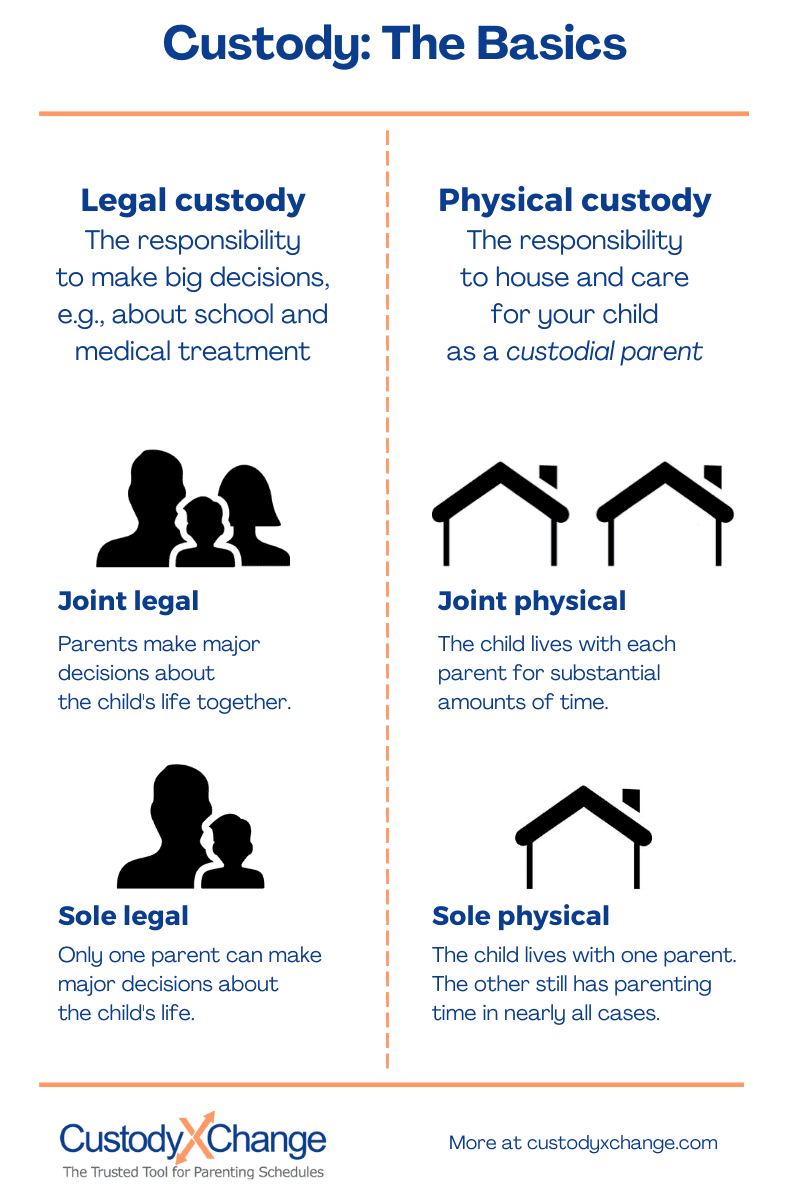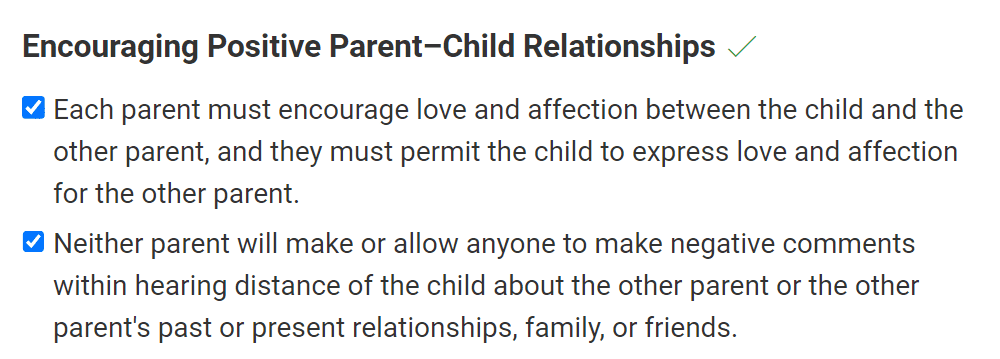Kentucky Parenting Plans and Custody Agreements
As part of your child custody case, it's important to propose a parenting plan, describing how you and your child's other parent will cooperate after divorce or separation. A lawyer can advise you on your plan and help you with the court process.
You can propose a parenting plan alone, but ideally you'll work with the other parent to write and submit it to the court. An agreement avoids a trial. If you have trouble compromising, you can work with a mediator — and a judge may even order you to try this. At the end of the court process, you'll receive a court order with a parenting plan in it that both parents have to follow.
Types of custody
Custody labels are an important designation that you should include in your proposed parenting plan.
Legal custody refers to responsibility for major decisions about your child.
Physical custody refers to where the child lives. In Kentucky, you'll also hear the terms parenting time, timesharing and visitation.
Either type of custody can be sole or joint. Kentucky assumes joint custody and equal parenting time are best for a child unless evidence shows otherwise or the parents agree to a different arrangement.

Unless one parent will have no contact with the child or irregular contact, you should include a parenting time schedule to detail your physical custody arrangement.
 Try this with Custody X Change.
Try this with Custody X Change.
Say which version (sole or joint) you want for both legal and physical custody, e.g., joint legal with joint physical. If you choose joint legal custody, explain how parents will make decisions together. Don't ask for sole custody without good reason or the other parent's agreement.
Suggested provisions to include
You know what makes your child unique. It's important for you to describe the co-parenting arrangement that you believe is best for your child.
Write the plan to serve your child's needs as they grow. Down the road, if you have to, you can return to court to change the plan.
Boone County gives examples of parenting provisions. These are good suggestions no matter where in Kentucky you and your child live. You're not required to include all of these in your parenting plan, but they can help you anticipate common conflicts.
Try this with Custody X Change.
Provisions to support your child's wellness
Commit to protecting your child, and write down your mutual expectations. You might require each parent to:
- Promptly notify the other parent of the child's medical emergencies
- Keep the other parent as an emergency contact at school and at doctor's offices
- Give the child their prescribed medicines
- Protect the child with appropriate safety gear (e.g., seat belts)
Be as detailed as necessary to support your child's health and safety.

Provisions to keep parents cooperating
Don't play dirty tricks to score points against the other parent. To encourage cooperation, you could require each parent to:
- Refrain from eavesdropping on parent–child communication
- Get the other parent's permission before changing the child's last name
- Insist that your child use names like "Mom" and "Dad" exclusively for you and the other parent, not for any new romantic partners
- Get the other parent's permission before scheduling extracurricular activities during their parenting time
- Give the other parent reasonable notice when scheduling or rescheduling doctor appointments
- Get the other parent's consent before enrolling the child in a new school
- Get the other parent's consent before picking up the child from school if it's not your scheduled parenting time
If both of you want as much parenting time as possible, don't try to extract more time through deception or manipulation. A healthier approach is to call each other before you resort to a babysitter or extracurricular program.

Provisions to support your child
You'll likely provide financial support by following a child support order. Beyond that, you can support your child's daily life by requiring each parent to:
- Help the child with homework
- Let them participate in extracurricular activities
- Return their belongings (including clothes and medications) to the other parent
Make rules that work for you and your co-parent.

Provisions to encourage your child to have healthy relationships
Emotional support is also important — and you should recognize that you aren't the only person who provides it. It's healthy for a child to have close relationships with multiple people. Specify that you'll:
- Allow the child to see their friends
- Encourage the child to stay in contact with their other parent
- Encourage the child to love their other parent (i.e., avoid parental alienation)
- Not let the child hear you, or anyone else, disparage their other parent or family members

Provisions to be fair to the child and the other parent
Fairness, respect, honesty and transparency go a long way. Sometimes it's hard to see things from someone else's perspective, and that's a common cause of conflict.
Your parenting plan is a great place to recommit to your values and to set out your expectations for each other's behavior. For example, you could agree to:
- Be willing to slightly adjust your co-parenting schedule as needed
- Limit yourself to certain contact methods during the other parent's time
- Not ask your child who they want to live with, nor discuss your court case with them
- Not discuss child support, or allow others to do so, in front of your child
- Not ask your child to report on what's happening at their other parent's house
- Not ask your child to keep secrets from their other parent
- Not use the child as a messenger

When and how to submit your parenting plan
You can submit a parenting plan at any time — the earlier the better, because it can focus your negotiations, reduce conflict and speed up your court case. Indicate the custody and parenting time you're asking for, at least in general terms, when you first file your case.
Kentucky doesn't have a statewide template for a parenting plan. Many parents use the Custody X Change parenting plan template, an online tool that offers guidance and lets you customize.
Often, local courts — especially in large counties — publish guidelines for parenting plan provisions and parenting time schedules. Look up the Local Rules of Practice and see what's listed under your county. The guidelines may be within the court rules, or they may be in a separate document. If you don't find what you're looking for, ask the court.
The easiest way to make a parenting plan
When you're writing a parenting plan, include all information your local Kentucky court requires and use airtight language, leaving no room for unintended interpretations.
If you hire a lawyer or mediator, they'll write up the plan and ensure it meets the court's requirements.
If you write your own plan, use technology to take guesswork out of the equation. The parenting plan template in the Custody X Change online app walks you through each step.

The result is a professional document that demonstrates your competence as a parent from the first glance.
The easiest and most reliable way to make a parenting plan is with Custody X Change.
